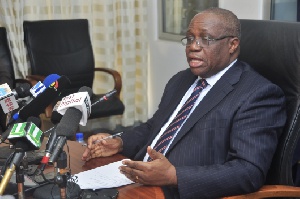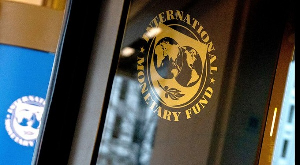The Monetary Policy Committee (MPC) of the Bank of Ghana voted on Wednesday 13th May 2015 to increase the monetary policy rate by 100 basis points to 22%.
According to them, the risks to inflation and economic growth remain high and a moderate tightening of the monetary policy rate and sustained fiscal consolidation is necessary to curb inflation and inflation expectations.
However, a careful analysis of the tight monetary policy stance from February 2013 to date reveals that it has lost its credibility in containing inflation due to the increase in central bank financing of government budget deficits and its interference in the foreign exchange market.
Given the IMF conditionality of reduction in central bank financing to 5% of previous years’ revenue in 2015 and zero in 2016 onward, and the reduction of BoG’s interference in the foreign exchange market, we expecteded the MPC to keep the monetary rate at 21%.
The current decision to increase the monetary policy rate to 22% could miss out on its key objective, given that the largest contributor to consumer inflation is from the cost-side. In particular, the high energy cost due to the power crisis and the high input costs due to the persistent depreciation of the cedi are exogenous to the producer and contribute largely to the increase in business cost of production.
Again, the expectations of inflation are heightened by failure on the part of government to honour its promises to solve the power crisis. This has increased the cost structure of most firms and translated into increases in prices on the domestic market.
As predicted by GN Research in our quarterly economic report, inflation ended the month of April at 16.8% and is expected to further increase to 17% in May 2015 due to pass-through effects of cedi depreciation on input costs and the high cost of production associated with the power crisis.
The increase in the monetary policy rate will rather have the following devastating effects on the domestic economy.
1. Lending rates are expected to go up given that the rate at which commercial banks borrow from the central bank has gone up. This will attract risky borrowers and increase the probability of default. Again, the collateral requirement of commercial banks is likely to go up due to the increase in probability of default. Currently, lending rates are hovering above 30%, which is already too high for businesses to pay.
2. Given that most businesses rely on financial institutions for credit to expand their business or to augment their working capital due to the rising cost of production, we expect stifling of business growth and increase in unemployment levels. Coupled with the ongoing fiscal consolidation, weakening of the domestic currency, and high cost of production due to the energy crisis we expect the economic growth rate to fall below the IMF’s estimate of 3.5% by end of 2015.
3. The average returns on the Ghana Stock Exchange (GSE) could dip further given the expected increase in interest rates on money market instruments. This is because most investors will divert their funds into money market instruments to safeguard their capital and maximise returns within the short- to medium-term. The Ghana Stock exchange underperformed in the first quarter of this year; however, there were signs of recovery in the latter part of March. As at 8th May 2015, the GSE recorded average returns of -0.26% and this expected to further dip given the increase in the monetary policy rate to 22%, ceteris paribus.
4. Again, the expected increase in interest rate yields will increase the cost of new debt by government and further increase the total public debt stock, which stood at GH?88.2billion (representing 65.3% of GDP)at end of first quarter 2015.
Business News of Saturday, 16 May 2015
Source: B&FT













